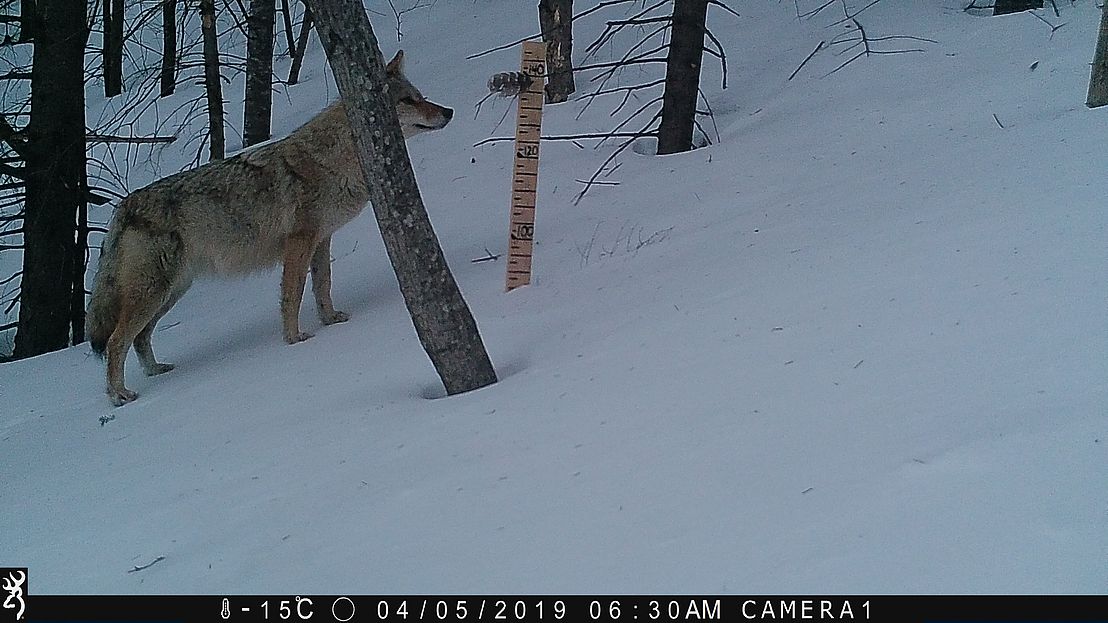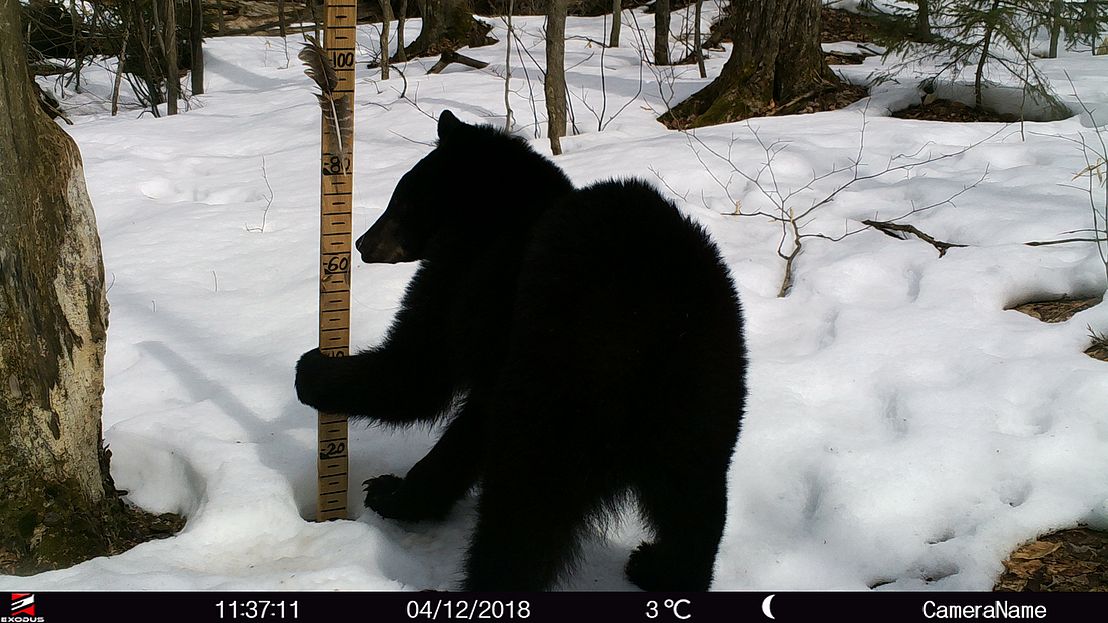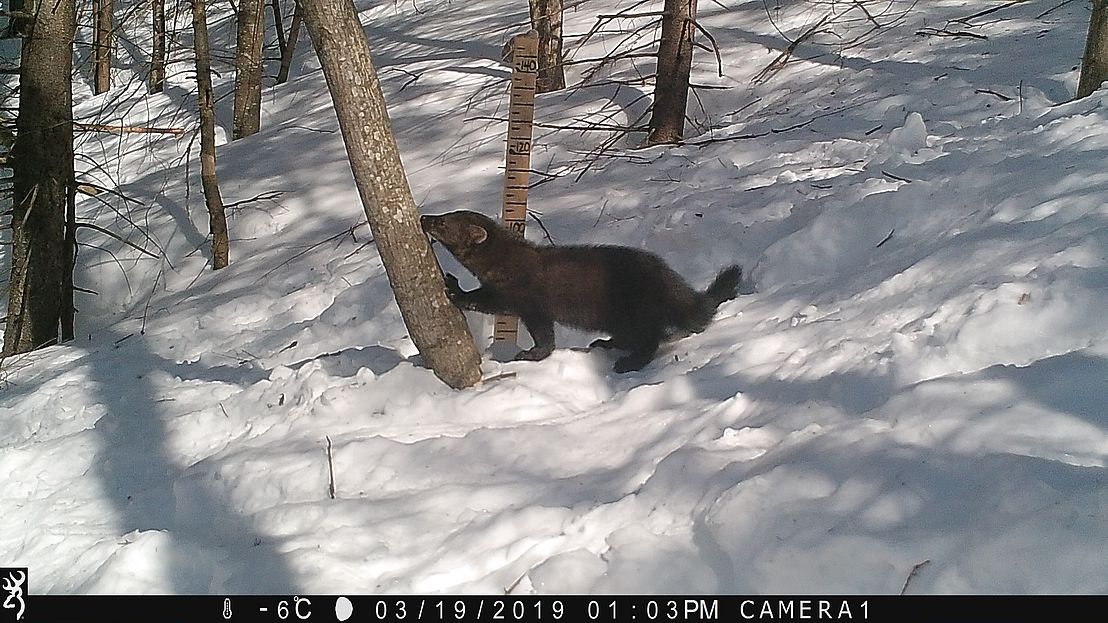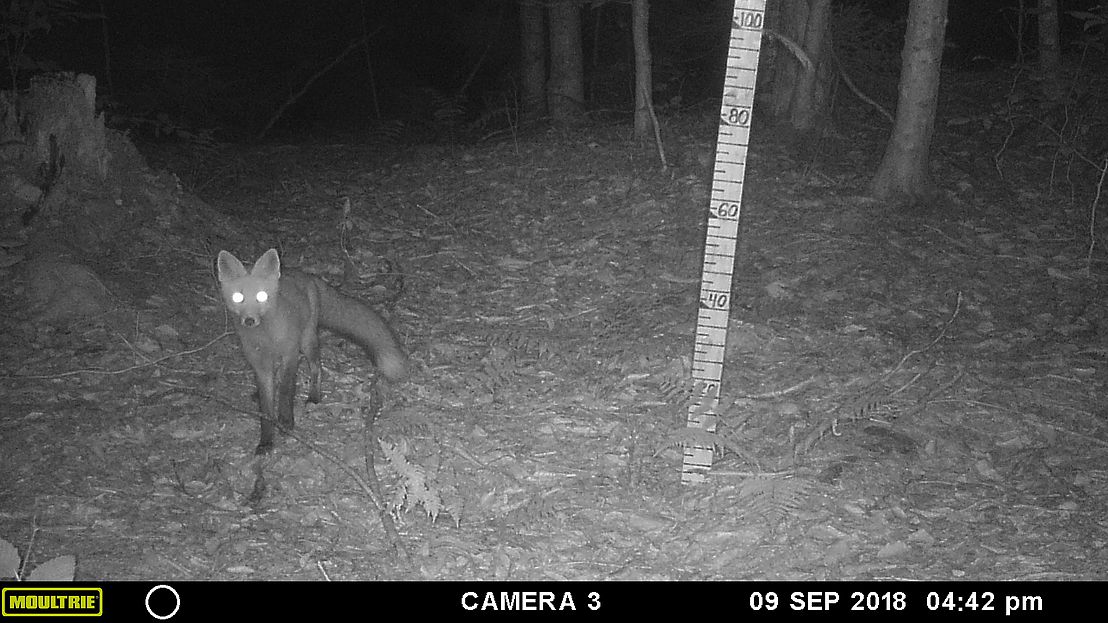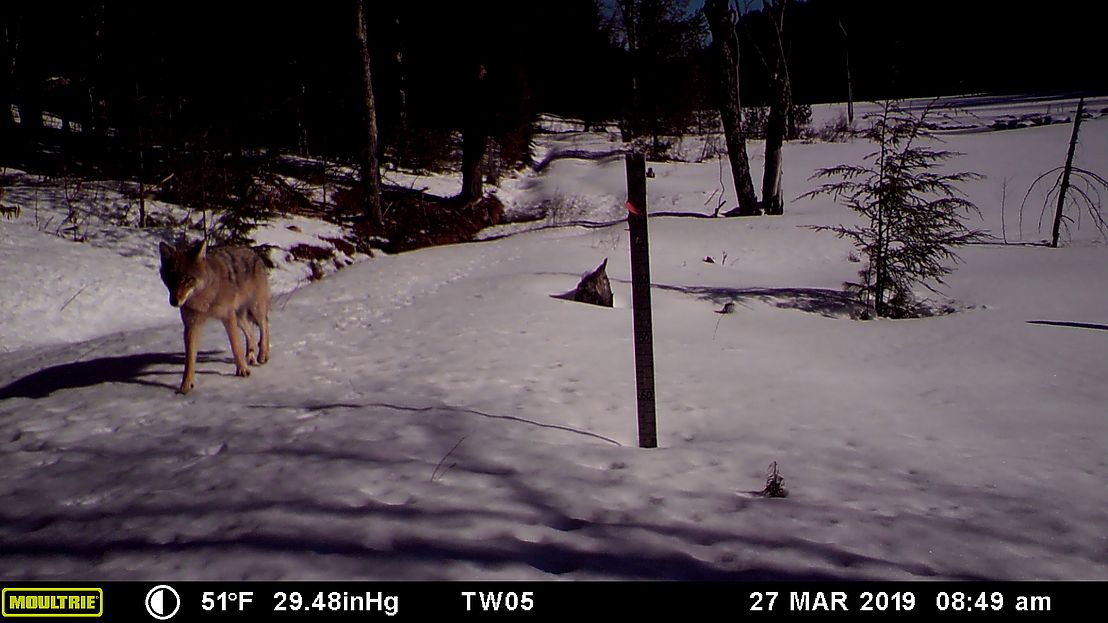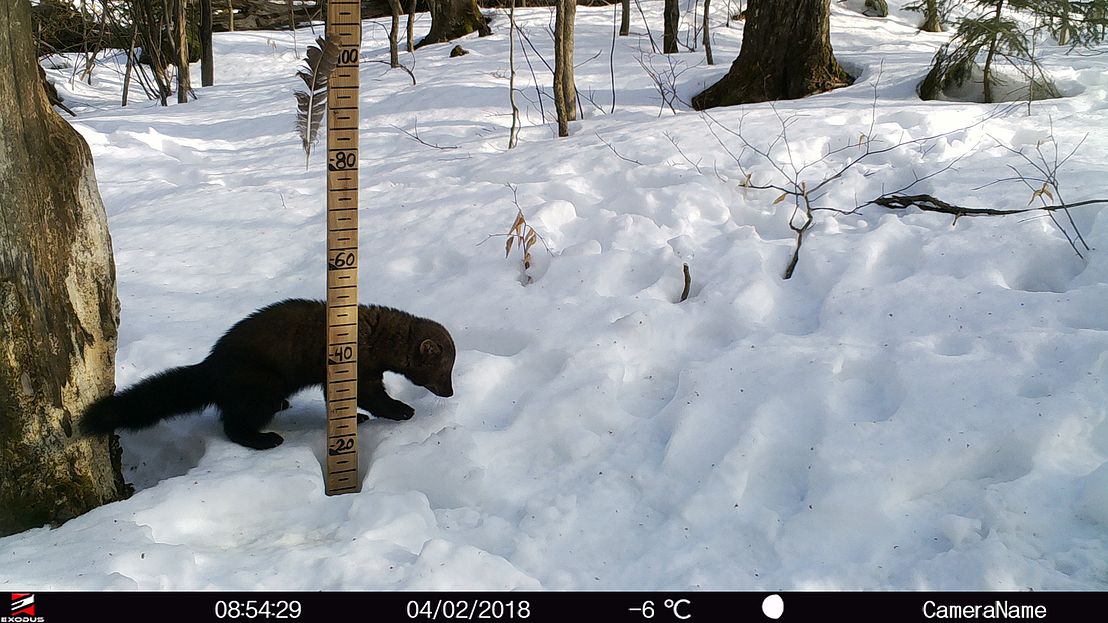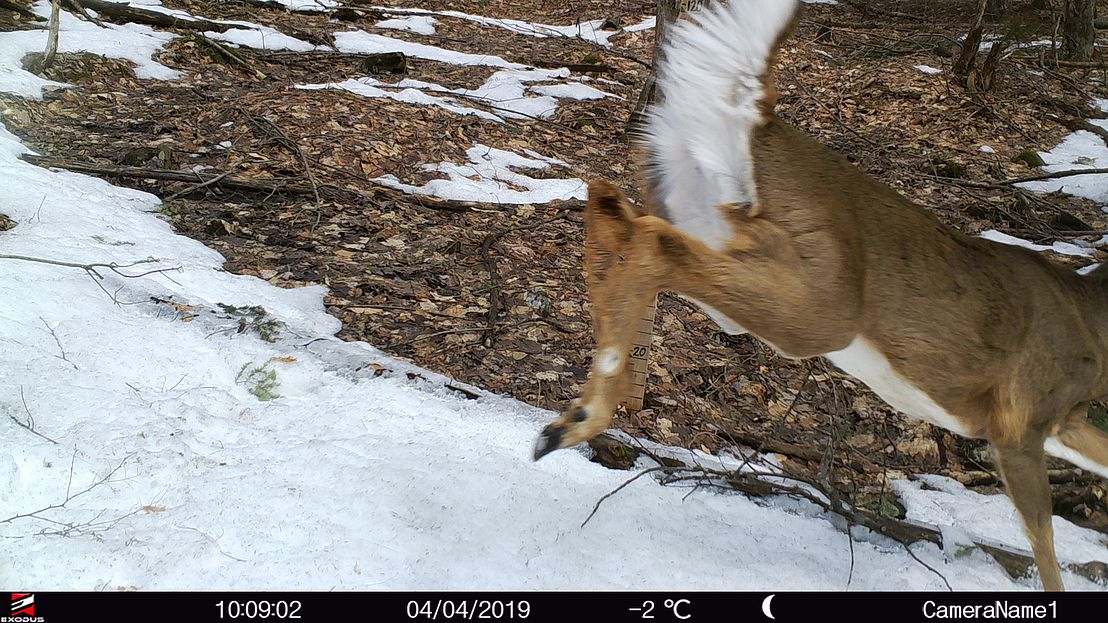Wildlife Monitoring
The wildlife in our region serves as a natural indicator for the health of our forests. Our monitoring programs invite community volunteers to track wide-ranging animals like otters, fishers, bobcats and black bears to better understand our resident wildlife populations, where they live, how they use different forest habitats, and how they travel across the landscape.
Interested in joining a wildlife tracking volunteer team?
Our next Wildlife Tracking Immersion training programs begin in November 2024 and January 2025.
We also offer free quarterly wildlife tracking meetups where you can meet other trackers and explore wildlife sign. Sign up to receive notifications of these events here.
Building on our History
Keeping Track Monitoring Program
Cold Hollow to Canada's wildlife monitoring work started through a partnership with Sue Morse of Keeping Track. Sue trained several cohorts of citizen scientists in the CHC region, who subsequently formed Keeping Track® teams and established transects (regular monitoring routes approx. 2.5 miles long and 60 feet wide) that they visited seasonally to document wildlife activity. Keeping Track volunteers focused on documenting wide-ranging mammals that are key indicators of ecological health: Black Bear, Bobcat, Canada Lynx, Fisher, Marten, Mink, Moose, and River Otter.


Keeping Track Data Analyses & Species Profiles
Since the inception of CHC's Keeping Track program, two 5-year analyses of the data have been conducted. The first also included a summary of the habitat requirements, behavior, and conservation status of our focal species.
- 2010-2014 Report and Species Profiles
by James Farrell, Rhianna Sommers & Michael Storace
UVM Rubenstein School of Natural Resources - 2016-2019 Report
by Jake van Deursen
Forest Ecosystem Monitoring Cooperative
Towards a New Protocol
When Track & Sign Specialist Sophie Mazowita joined the CHC team in 2021, she went through a lengthy review of our wildlife tracking programs in consultation with our staff, board members, and Keeping Track volunteers. Ultimately, the decision was made to press pause on the seasonal monitoring transects and deploy new protocols to better address CHC's evolving monitoring goals.
You can read more about the evolution of the monitoring program in this newsletter article:
